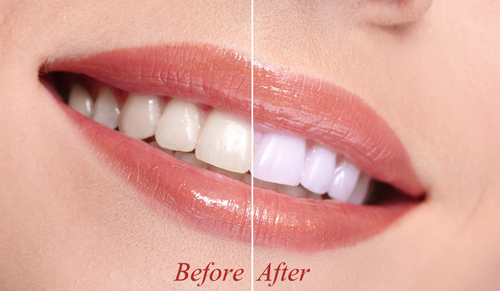
What’s better than a dazzling, white smile?
You win people over more easily, impress at work, and even feel more confident throughout the day.
But white teeth shouldn’t come at a cost – and many patients are falling prey to DIY whitening schemes that do more harm than good. Here’s how to spot whitening tactics that are potentially dangerous, and make sure your whitening stays on the safe side.
Remember: you can always whiten safely, if you go about it the right way. Or, you can damage your teeth in the process. So checking in with your dentist before starting any kind of whitening regimen is always the best bet.
Safe Teeth Whitening Tips
We all want white teeth – and most of us are willing to try something new to arrive at a bright grin. But if you hear about a tactic that’s cheap and uses ingredients you have in your kitchen, that’s probably too good to be true. With the spread of DIY healthcare thanks to our friend the internet, there are many guides to whitening out there that just aren’t good for your teeth. We’ll help you sort through the good and bad advice.
First, it’s important to learn a little more about exactly how teeth whitening works.
What Happens During the Teeth Whitening Process
Whitening is a little more complicated than you might think. Here’s how teeth typically become stained:
- Enamel, the outermost layer of your teeth, actually has a porous surface
- As you eat and drink dark foods and liquids, tiny compounds lodge in your enamel’s pores
- These compounds build up and gradually darken the color of your teeth
- This is known as extrinsic staining
- Intrinsic staining is different, and occurs during tooth development due to certain medications or trauma to the tooth – that can’t be whitened with traditional methods, and the teeth need to be covered with porcelain veneers or composite to change their shade
Teeth bleaching agents expose your teeth to whiteners like hydrogen peroxide. Peroxides enter enamel and break up stains, as well as change the natural color of your enamel. Whitening products technically only remove superficial stains to return enamel to its natural color. But because “whitening” sounds a lot friendlier than “bleaching,” it’s become the standard term for all products that affect the enamel’s shade.
So, Can Peroxides Damage Teeth?
As long as you’re using the bleaching agent as instructed, no, there shouldn’t be any damage to your teeth. But if you’re whitening at home or using a whitening agent that doesn’t have the American Dental Association’s seal of approval, this can open up your teeth to potential harm.
Again, this is why it’s crucial to check with your dentist before you start whitening on your own.
It’s also important to note that home whitening and professional whitening aren’t going to yield the same results in the same amount of time. If you’re look for a quick fix and whiter teeth on the same day (for an upcoming event or if you’re on some kind of timeline), you’ll want to try in-office whitening.
Professional whitening is also appealing because patients don’t have to worry about the nitty gritty – they can just sit back and relax while their dentist & staff whiten their teeth. No worries about how much whitening gel to use, whether the trays or strips are properly applied, or how long to keep them on for.
If you’d like to schedule a whitening appointment, just get in touch!
Avoiding Common Whitening Problems
- Don’t be unrealistic – It’s typically best to not go whiter than the whites of your eyes. This will make your smile stand out for the wrong reasons, and your teeth look unnatural. Plus, it’s more likely that you’ll damage your enamel with extreme whitening.
- Don’t use DIY alternatives – Options like strawberries and baking soda aren’t going to deliver good results. Instead, they’re more likely to abrade your enamel and actually erode your teeth. Since a thin enamel layer allows the yellow dentin beneath to show through, engaging in this practice long-term could actually darken your smile. Professional products may cost a little more, but they’re worth it!
- Look for the ADA seal of approval – Make sure that the over the counter whitening kit you’re using has been approved by the ADA.
- React to sensitivity – Don’t try to whiten through the pain – it’s not worth it, and you might be harming your enamel. If you have sensitive teeth, you can still whiten; you’ll just need to go about it a little differently. Ask Dr. Barton about whitening with sensitivity and he’ll make recommendations that will work for your personal needs. Using fluoride toothpaste or toothpaste containing potassium nitrate for a few weeks prior to whitening could also help you get more comfortable.
Ready to get whitening? Reach out today for personal guidance from Dr. Barton and our team.
Dalton Teeth Whitening | Whiten Teeth Dalton | Teeth Whitening Dalton





